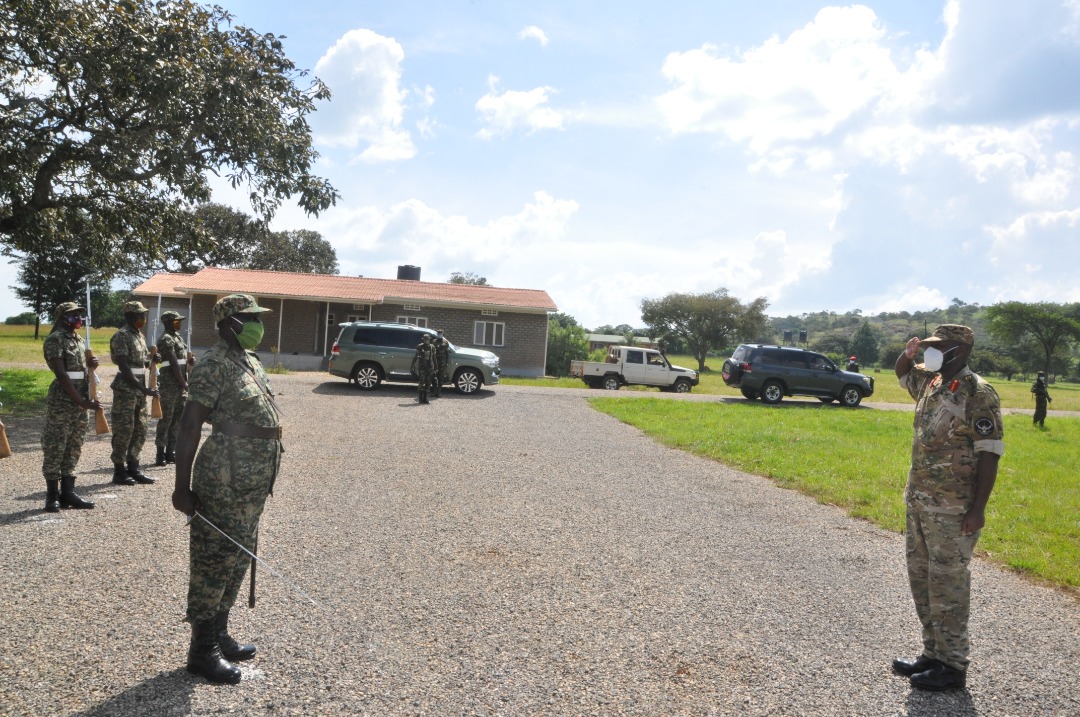By Dennis Katungi
The News that the President and Commander In Chief Gen Yoweri Museveni had done a mini reshuffle in the Security forces dropped on to our hot wires around 10.00 am on 16th December. It was music to my ears. Maj Gen Kahinda Otafire once coined a phrase: ‘Leave the matters of Generals to Generals’. Since he postulated as such, the concept has been misused in debate as there is a standard and quality of discussion that is appropriate.
In the first instance Uganda’s constitution in Article 208 subjects armed forces to civilian authority. This means that politicians, whether they are in the army or not would oversee and direct the armed forces. Although we have not tested this in Uganda post 1986, a civilian head of state should and can be Commander In Chief of the armed forces; just like President Milton Obote was. On the basis of this tenet, I beg to discuss the ‘matters of generals’ in this article.
Democracies in developing countries are perennially under pressure to use versatile force in situations of unrest or even insurgencies. The reasons for this are varied – the need to cope with diverse forms of violence but still keep the hearts and minds of citizens; public demand to prevent and punish human rights violation; international law, and the presence of international organisations. Putting into effect demands for versatile force has profound implications for both military and police forces. Much of this responsibility lies on the shoulders of the head of state, at times on the advice of the National Security Council.
Given the fact that bullets rather than ballots had dominated politics in Uganda since independence threatening the economic and social basis on which democratic processes and progressive development depends, we should be glad that only one leader, President Yoweri Museveni has maintained a firm grip on Security Forces. The command and control of armed forces is critical when running a developing Nation. That is the reason why a President like Godfrey Binaisa was not able to successfully effect changes in UNLA although he was Commander in Chief. When he posted UNLA Chief of Staff then Brigadier Oyite Ojok as Ambassador to Algeria and shifted then Minster of State for Defence Yoweri Museveni to Regional Cooperation, he was defied and his removal followed promptly. It means that he was not in command and control of the armed forces. From where I sit, Uganda still needs a Museveni or close enough prototype – who commands the respect of the Armed Forces and not a Kyagulanyi, who even I, a civilian public servant have no respect for. A self-confessed ganja-man with the nom degre ‘ghetto president’ we witness him daily disrespecting Police, commanding goons to disrupt law and order and appealing to his backers via CNN basing on lies and subterfuge. Who needs a President like that; save for birds of his feather?
The changes that the President has made in the security forces should give confidence to Ugandans that there will be a firmer grip on keeping law and order and if need be, on enforcement.
Equally, auxiliary forces will remain on standby to lend a hand to Uganda Police Force where and when that hand is needed. The security of citizens, foreigners, investors and their property is of paramount importance; whether we are in election season or not. Uganda’s Constitution in Article 212 clearly outlines the functions of the Police Force: to protect life and property; to preserve law and order; to prevent and detect crime and to co-operate with the civilian authority and other security organs as by law established.
The appointment as Deputy IGP of Maj Gen Paul Lokech – known in forces circles as the Lion of Mogadishu, reputed to have cleared that troubled Somalian city of Alshabab is welcome. Equally interesting is the re-deployment of Lt Gen Muhoozi Kainerugaba back to the Special Forces Command. Gen Kainerugaba is suited to the Special Forces task because of his background and specialised training. He is reputed to have planted and commanded special forces units in urban trouble spots in Somalia that removed the threat of Alshabab’s terror sniper cells that were hardened urban militants. UPDF has made an apt and appropriate re-org in that sector.
In other news, ICC found that the government of Uganda and President Museveni had no case to answer on the Kasese incident that led to 100 or so deaths. The analysis done by ICC indicated that 87 of the dead were armed combatants known as the Homeguards and that they died in combat. It was also noted that only 13 people got caught up in the crossfire and the analysis also took into account that 14 Uganda Police Officers were murdered in various attacks by Rwenzururu homeguards. ICC’s analysis relied on Col Frederic de Mulinen’s Law of War for Armed Forces’ which states that any building becomes a targeted fortress once it harbours armed personnel in active combat. While ICC’s verdict is welcome, the incoming NRM government must work with the key stake holders to turn over a new leaf in that restive region of Rwenzururu in order to avoid a future fiasco of such magnitude.
It was stated in circles close to the Obusinga that the late mother of Omusinga had acknowledged before her death that serious mistakes were made and minced no words impressing it upon the Omusinga and his courtiers that it was they who were the agent provocateurs to the catastrophe that befell the Palace. The leaders that will be voted in, in the forthcoming elections have a job cut out for them to work for peace in that troubled region, one hopes they elect peace, not trouble makers. In the words of David Lloyd George: ‘Don’t be afraid to take a big step if one is indicated. You can’t cross a chasm in two small jumps’.
Dennis Katungi is Communications & Media Relations Manager – Uganda Media Centre. @Dennis_Katungi




